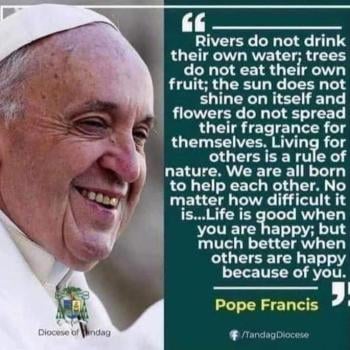The problem with individual political action informed by religious commitments and desiderata is the potential for the entanglement of these commitments with public discourse and public choice that affect other individuals, whether religious or not. There are certainly boundaries in the public sphere that must be recognized, without insisting others agree with particular choices made, individually or in a group, on the basis of religious reasons that necessarily apply to only those who have declared their commitment to abide by its dicta. Thus far, the attitude of hostility, intolerance, and militancy against those who reject a particular response to the political issues has been the main source of conflict in Muslim societies.
There is something in the public theology of Islam that can mitigate this hostile attitude by clearly demonstrating the classical heritage that recognizes the existence of a private realm separate from the public one to allow for ethical pluralism to determine interhuman relationship without diminishing the role of religious commitments in developing a social democratic constitutional polity. The future of Islam will certainly be determined by its traditionalist interpreters: they can stifle any chances for Islam to become a source of universal ethical reflection in forging a global community, maintaining the narrow vision of the Shari'a-oriented public order that divides the world into believer and non-believer, thereby rejecting the inclusiveness of human associations. This inclusiveness is the vision of the future global community in which a religion like Islam with its experience in forging a pluralistic religious and cultural society has a lot to contribute for the common good of humankind.
Abdulaziz Sachedina is the Frances Myers Ball Professor of Religious Studies at the University of Virginia. He has been conducting research and writing in the field of Islamic Law, Ethics, and Theology (Sunni and Shiite) for more than two decades. Dr. Sachedina has studied and written extensively on social and political ethics, including inter- and intrafaith relations, Islamic biomedical ethics, and human rights. His publications include Islamic Messianism (SUNY, 1980); The Just Ruler in Shiite Islam (Oxford University Press, 1988); The Islamic Roots of Democratic Pluralism (Oxford University Press, 2002); Islamic Biomedical Ethics: Theory and Application (Oxford University Press, February 2009); and Islam and the Challenge of Human Rights (Oxford University Press, September 2009), in addition to numerous articles in academic journals. He is currently conducting research in Iraq and Iran on the role of reason in classical formulations of Islamic ethics.




